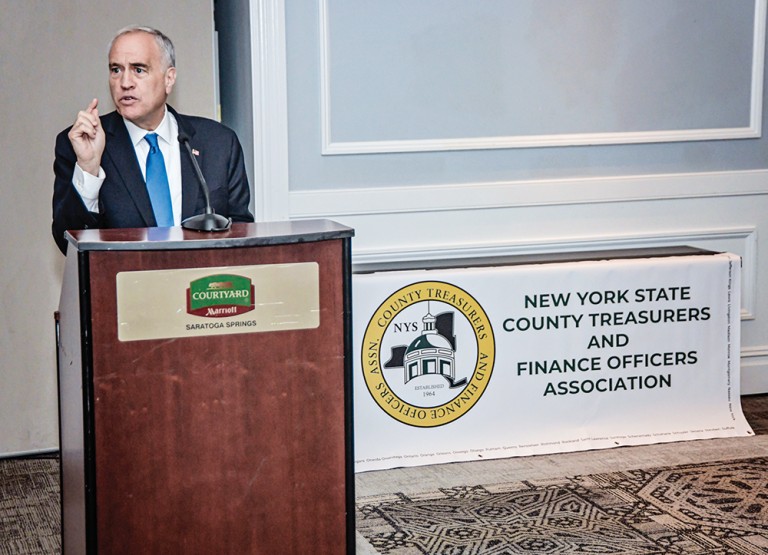By Forum Staff
The COVID-19 pandemic has caused property tax disparity to worsen in New York City, driving housing costs higher for many, according to a report released on Wednesday by State Comptroller Tom DiNapoli.
Property tax disparities have been well documented for decades by advocates, fiscal monitors and the city, but the report found even when property values declined for many condos, co-ops and rental apartments due to the pandemic, property tax bills continued to rise. DiNapoli determined this was due in part to market volatility and aspects of how the city calculates property taxes.
New York City sets different tax rates based on class of property, including for single or multifamily homes with more than three units, the comptroller noted. In addition, co-ops and condos are generally not assessed based on market value driven by sales prices, but instead on the value of similar apartments, including rent stabilized units or those in a building receiving a tax exemption.
Market value increases are also limited by annual and five-year caps that differ based on property type. As a result of these caps, a decline in market value on lower-valued properties does not necessarily result in a lower tax bill. Instead, lower-valued properties more often bear a far greater tax burden than the city’s highest valued properties.
For example, during the Great Recession the median market value for family homes dropped by 14.3 percent, but the median tax bill increased by 32.5 percent. Similarly, during the pandemic, the median market value for multifamily properties declined by 2.7 percent but the median tax bill increased by 5.8 percent from fiscal years 2021 to 2023. For rentals, tax bills grew 9.6 percent in the same period, despite a market value decline of 0.3 percent.
DiNapoli’s report found these differences were even more pronounced from fiscal years 2007 to 2024 as the gap in tax burden based on property value continued to widen. The median tax bill for the city’s most expensive family homes grew by 131 percent during this period, compared to 149 percent for the city’s least expensive homes.
Renters are also impacted by the City’s tax system even though they do not own their homes. While tenants do not pay property taxes directly, property taxes represent a large cost to the building owner which is often passed on to renters. During the pandemic, rental properties in the top 20th percentile saw a market value decline of 2 percent and tax bills rose by 2.1 percent, while the bottom 20th percentile saw the market value rise by 1.7 percent and tax bills go up by 11 percent.
Overall, the pandemic drove NYC’s residential property values up 11 percent since fiscal year 2021, but not in Manhattan, which is home to some of the city’s most expensive residential real estate. Market value increases were more concentrated in the outer boroughs in working-to-middle-class neighborhoods.
DiNapoli recommended that city and state leaders continue their efforts to address disparities in the levying of property taxes, which represent an outsized share of owner costs, especially for lower-income households. DiNapoli also suggested they consider:
- Accounting for how residential property taxes respond to economic disruption to avoid worsening existing issues.
- Revisiting the Advisory Commission on Property Tax Reform’s recommendations to reform the current tax system while maintaining the level of total tax collections.
- Working to address the city’s lack of affordable housing, including consideration for tax incentives to promote their construction and rehabilitation.

